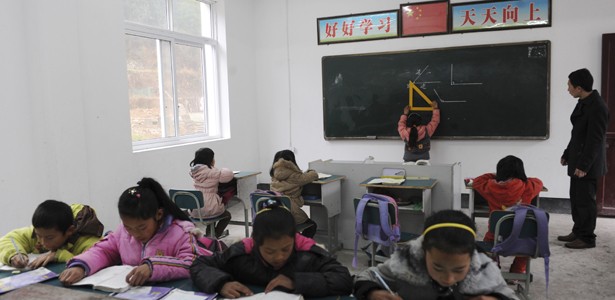The global spotlight has its light currently focused on Chinese education. Countries like the United States, the United Kingdom and Spain are exploring and thinking of adapting Chinese methods of teaching.
Such is the case in the United Kingdom, where HarperCollins Publishers want to create a British version of "Yi Ke Yi Lian," East China Normal University Press' math workbook series for Shanghai students.
This was announced by the East China Normal University Press Ltd. on Wednesday, Aug. 19, in a press conference at the Shanghai Book Fair.
The British version, called "The Shanghai Maths Project," is comprised of 11 volumes. The first volume was published on Aug. 10. A new volume will come out late August, while two volumes are due to be released in October.
Fan Lianghuo, an education professor at the University of Southampton, led the project. The goal is to make the Chinese math workbook series maintain its effectiveness and original difficulty while catering to British sensibilities.
"The Shanghai Maths Project" will also contain new information not included in the Chinese version due to the differences in the two countries' curricula.
"I feel in the U.K. the teachers are more worried about how to make the students feel good about themselves rather than try to get them to perform the best academically," said Michael Herd, a Scotland native currently teaching math in an international school in Shanghai for the past seven years.
According to Herd, there are several key differences between British and Chinese teaching methods. For one, the British method is student-focused, while the Chinese emphasize results.
For Li Shiqi, a math professor and PhD advisor at East China Normal University, it's all about practice.
"Some people tend to think Chinese workbooks teach through the use of repetition and memorization, but this is wrong," Li said. "We believe in theory that practice makes perfect, and so in our workbook we try different ways to designing questions, which helps students understand what is being taught."



























